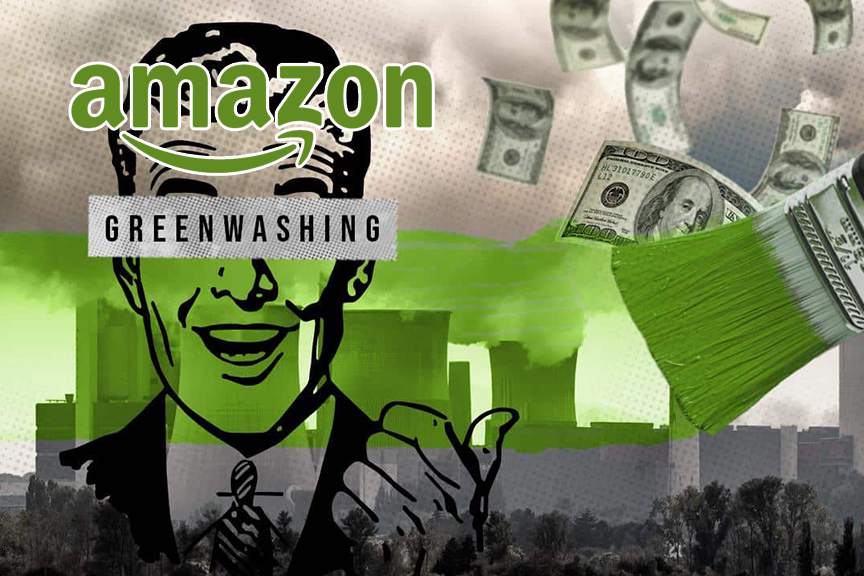Greenwashing is recognized a practice where companies exaggerate or falsely claim their eco-friendly practices to attract environmentally conscious consumers. Amazon’s ‘Amazon Aware’ product range has recently come under scrutiny, facing allegations of greenwashing; an issue that has long been discussed in Seller Listings on Amazon; but this claim hit’s closer to home with the platform.
One major issue that came to light is the carbon footprint associated with these products. They are manufactured in locations up to 5,000 miles away from their final destinations, which significantly contributes to their overall environmental impact. Adding to the concerns, these products are delivered in single-use plastic packaging, which is inconveniently only recyclable at a small amount of large supermarkets. This limited recycling option has raised questions about Amazon’s commitment to environmental responsibility.
The ‘Amazon Aware’ product line prominently displays third-party certifications such as Fairtrade, the Rainforest Alliance, and the Forest Stewardship Council (FSC). While these certifications are considered reputable on sight, they often apply to just one aspect of a product’s sustainability. An example is a coffee marketed as FairTrade, but delivered in non-recyclable plastic cups. Displaying a certification logo can mislead consumers into thinking that the entire product is eco-friendly, when in fact, only a part of it meets these criteria.

This greenwashing extends to the high-volume sale of third-party ink cartridges on Amazon’s platform, predominately clone ink cartridges manufactured in China. Many of these products claim to be eco-friendly in their product listings, boasting recycled or remanufactured components, but in reality, they are newly made non-recyclable products that don’t come close to their sustainability claims. This greenwashing on packaging and in product listings on Amazon’s platform misleads consumers into making environmentally irresponsible choices.
The greenwashing of ink cartridges has several negative consequences. These clone cartridges often have lower quality, leading to potential printing issues and unresolved damage and by infringing on manufacturer patents, they aren’t suitable for remanufacturing and they go into landfills unrecycled. Moreover, they hide the true environmental costs and carbon footprint of production and transportation.
Legitimate remanufacturers of name brand used printer cartridges face an unfair competition when they have to compete with newly made third-party ink cartridges posing as recycled in the Amazon marketplace. Greenwashing distorts the market and creates challenges for consumers in identifying truly eco-friendly products.
Beyond market distortion, greenwashing contributes to environmental harm as millions of clone ink cartridges end up in landfills. This not only harms the environment but also has economic implications, leading to job losses in the ink cartridge industry.
Addressing the issue of greenwashing in the sale of third-party ink cartridges on its platform is crucial for Amazon to uphold its commitment to consumer protection and environmental responsibility. Stricter verification requirements for sellers, mandated disclosure of sourcing information and materials, and clear criteria for deceptive marketing practices need to be implemented and enforced.
It’s also crucial for consumers, advocates, and politicians to hold Amazon accountable for addressing greenwashing issues in third-party ink cartridge sales. By taking these steps, Amazon has the potential to reinvigorate consumer trust and fulfill its environmental responsibilities.






